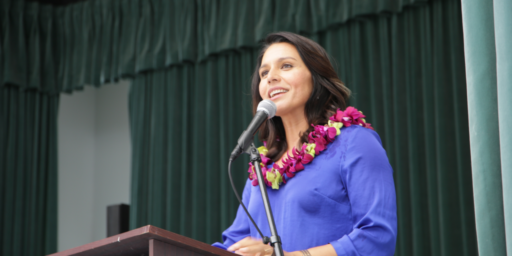GOOGLE IS AS GOOGLE DOES
Invisible Adjunct points to anecdotal evidence that candidates for academic jobs are increasingly being checked out via Google to see what they’ve posted on the Web and thereby to eliminate those who may not be “a good fit.” As she points out, Googling is becoming prevalent in other spheres, so it shouldn’t be all that surprising.
True. And I’m not sure that I wouldn’t do it if I were on a job search committee myself. It does, though, have tremendous potential for abuse, especially in academe. One supposed hallmark of the profession is “academic freedom.” With Google, it would be relatively easy to weed out candidates whose political views don’t conform to those on the hiring committee. This would, of course, be geometrically more true for aspiring academics who blog under their real name.
Of course, it’s always been true that certain assumptions were made based on where people went to school, what part of the country they were from, and that sort of thing. In the past, though, hiring committees had little way to check to see what prospective hires were doing locally. Now, newspaper op-eds, club memberships, and even quotes from student newspapers show up on the Web.
One of Rumsfeld’s Rules is, “If a problem has no solution, it may not be a problem, but a fact, not to be solved, but to be coped with over time.” This falls into that category. But it’s potentially disturbing nonetheless.






Yes says the citrus pseudonym.
Speaking of which, can you talk Dr. Citrus into resuming his blogging? He simply won’t listen to me.
Speaking just of blogs, I see no problem with reading a candidate’s blog once they make the short list – just as I would be astounded if the search committee did not at least look at a representative sample of a candidates academic publications.
It does get trickier when folks put personal information on a web page. But, you volunteer to put that information up, just as the committee can not ask you if you are married but the candidate can mention that they have a partner.
Of course, knowing this, I keep my last name off my blog.
Ted K.
Ted,
I don’t think reading the blog violates the candidate’s privacy; but it does have implications for further politicizing the process. Publications are a different kind of thing, since they do tell the committee about the quality of the candidate’s research. There’s politics there, too, of course, but it’s not as concrete.
—